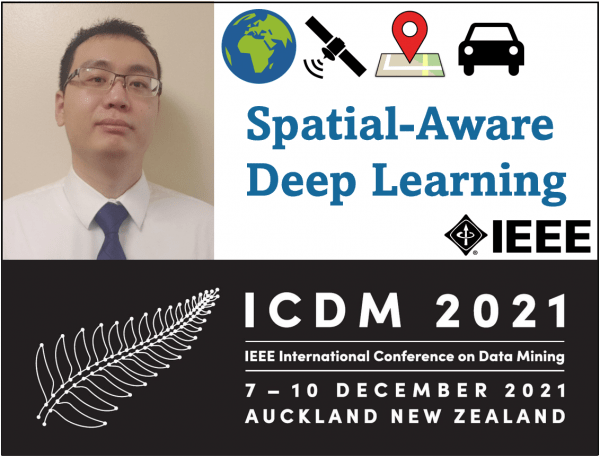Dr. Yiqun Xie Received the Best Paper Award at the 2021 IEEE International Conference on Data Mining
Assistant Professor Dr. Yiqun Xie received the Best Paper Award with collaborators for their work: "A Statistically-Guided Deep Network Transformation and Moderation Framework for Data with Spatial Heterogeneity," at the 2021 IEEE International Conference on Data Mining (ICDM).
Xie's research tackles a fundamental challenge posed by spatial data to general machine learning approaches: spatial heterogeneity (e.g., see a recent PNAS article). As the processes/functions from observed features (e.g., spectral values from satellite imagery) to prediction targets (e.g., land cover classes) are often nonstationary over space — which violates the common identical distribution assumption underlying machine learning methods — attempts that train a model with a single set of parameters for different regions may lead to "hit or miss" solutions and significantly limit model performance. Making the problem more challenging, the spatial footprints of different processes are often unknown in practice.
The paper offers a new approach that addresses this key challenge by statistically-guided spatial transformation, which can automatically recognize heterogeneous spatial processes in the input data and capture their footprints. It also introduces a spatial moderator that can generalize heterogeneity patterns learned in one region to a new location. The framework can be applied to general deep learning architectures, and experiment results have demonstrated substantial performance improvement on fully-connected (e.g., ANN) and recurrent (e.g., LSTM) neural networks.
Published on Wed, 02/02/2022 - 18:09


